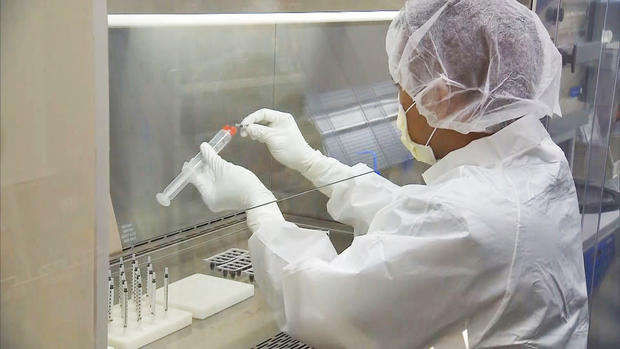119 meningitis infections reported in 10 states
Fungal meningitis has infected 119 Americans, killing 11, according to newly released data from the Centers and Disease Control and Prevention. The infection has now been reported in 10 states, one more than previous estimates.
On Monday health officials had announced 105 people were infected in nine states, including eight deaths. A ninth death was then reported late Monday by a Nashville, Tenn., hospital. Health officials also said Monday that up to 13,000 people received the steroid shots that have been considered a likely source behind the infections.
States with reported infections of fungal meningitis include Florida (four cases), Indiana (12 cases), Maryland (eight cases including one death), Michigan (25 cases including three deaths), Minnesota (three cases), North Carolina (two cases), Ohio (one case), Tennessee (39 cases including six deaths) Virginia (23 cases including one death) and, the newest addition to the list, New Jersey (one case).
The outbreak is tied to methylprednisolone acetate steroid injections made by specialty pharmacy New England Compounding Center. After contaminants were discovered in an unopened vial during an inspection at the Framingham, Mass., facility, three lots of single-dose vials of the steroid that were sent to 76 facilities in 23 U.S. states -- in total 17,676 vials -- were recalled.
States that received injections include: California, Connecticut, Florida, Georgia, Idaho, Illinois, Indiana, Maryland, Michigan, Minnesota, North Carolina, New Hampshire, New Jersey, Nevada, New York, Ohio, Pennsylvania, Rhode Island, South Carolina, Tennessee, Virginia, Texas and West Virginia.
- Husband awaits meningitis test results following wife's death
- Finding meningitis victims before it's too late
- Doctor calls for more regulation amid deadly meningitis outbreak
The company, which mixes medications and is not subject to the same FDA approval as a pharmaceutical company that manufactures drugs, expanded its recall Saturday to include all other products the company manufactures. The company is licensed in all 50 states.
Fungal meningitis is not contagious, health officials note. The disease can be treated with high-dose intravenous antifungal medications. The earlier people get treated, the more likely they are to have better outcomes, officials said.
The source of the fungus has not yet been identified, and the cause of infections in the other patients is still being assessed, according to the CDC.
Infected patients have reported mild symptoms, including slight weakness, slightly worsened back pain or even a mild headache, the CDC said. Patients have had symptoms generally starting from one to four weeks after receiving the injection. Several patients also suffered strokes that are believed to have been caused by the infection.
Those who had an epidural steroid injection since May 21 should contact their doctor as soon as possible if they are experiencing the previously mentioned symptoms in addition to fever, sensitivity to light, stiff neck, slurred speech or increased pain and redness at the injection site. Concerned patients could also check with their doctor if they have any questions on the type of medication used in their procedure.
Dr. William Schaffner, an infectious disease specialist who has been tracking the outbreak at the Vanderbilt University Hospital, told the CBS Evening News that the majority of people who received the injection probably won't get sick.
"If there is a silver lining, it's that apparently many people were inoculated but the attack rate is very small," he said. "It's really about 1 percent or less.
The CDC has more information on the meningitis outbreak.

